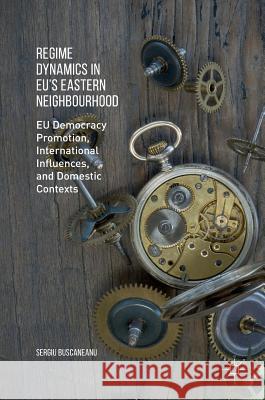Regime Dynamics in Eu's Eastern Neighbourhood: Eu Democracy Promotion, International Influences, and Domestic Contexts » książka
topmenu
Regime Dynamics in Eu's Eastern Neighbourhood: Eu Democracy Promotion, International Influences, and Domestic Contexts
ISBN-13: 9781349950874 / Angielski / Twarda / 2017 / 270 str.
Regime Dynamics in Eu's Eastern Neighbourhood: Eu Democracy Promotion, International Influences, and Domestic Contexts
ISBN-13: 9781349950874 / Angielski / Twarda / 2017 / 270 str.
cena 402,53
(netto: 383,36 VAT: 5%)
Najniższa cena z 30 dni: 385,52
(netto: 383,36 VAT: 5%)
Najniższa cena z 30 dni: 385,52
Termin realizacji zamówienia:
ok. 16-18 dni roboczych.
ok. 16-18 dni roboczych.
Darmowa dostawa!
Kategorie:
Kategorie BISAC:
Wydawca:
Palgrave MacMillan
Język:
Angielski
ISBN-13:
9781349950874
Rok wydania:
2017
Wydanie:
2016
Ilość stron:
270
Waga:
4.80 kg
Wymiary:
21.0 x 14.8
Oprawa:
Twarda
Wolumenów:
01
Dodatkowe informacje:
Bibliografia
Wydanie ilustrowane
Wydanie ilustrowane











